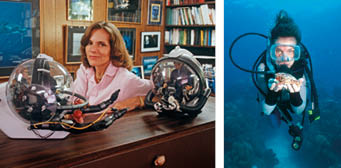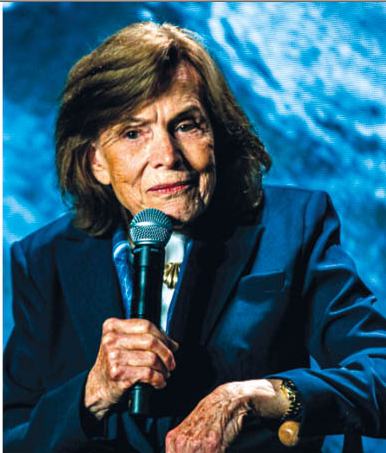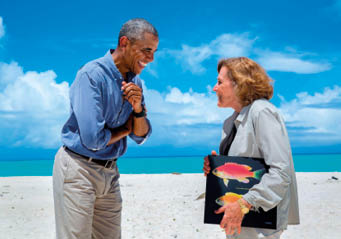Dr Sylvia Earle is a marine scientist, protector and a legendary ocean explorer.
Alongside her research and conservation work, she is a pioneer in the development of technology to help access the deep sea, leading over 100 expeditions and achieving numerous firsts and records as a diver and submersible operator.
She is the recipient of over 100 national and international honours and awards, including being named an IUCN ‘Patron of Nature’, a ‘Living Legend’ by the Library of Congress, a UN Environment Programme Champion of the Earth, and Time magazine’s first Hero for the Planet.
Through Mission Blue, the global ocean conservation alliance she founded in 2009, Earle continues to explore the ocean to inspire public support for a network of marine protected areas around the world, known as ‘Hope Spots’.

Big ideas
Implementing the ideas big enough to change the world occupies me 24/7. It is about trying to do everything possible to change the way people think about the ocean, and then to act on protecting the ocean as if our lives depend on it – because of course they do.
For me, that means expeditions, it means fostering new technologies.
One of the exciting things I’m doing
now is helping to develop new submersibles that will be launched about this time next year in French Polynesia. The aim is to take more people into the depths to explore with us. It’s a continuation of what I have been involved with for much of my life, to encourage people to go see for themselves, as snorkelers, divers, whatever it takes. But we need to go deep – most of life on Earth is below where sunlight shines.
The best chance we have to achieve planetary security is to protect those systems that remain in good condition, that are largely intact. That means most of the deep sea that has been largely inaccessible until right about now.


